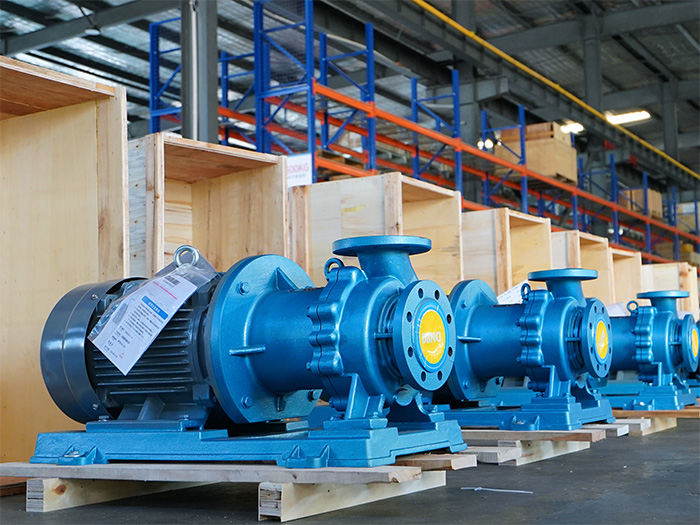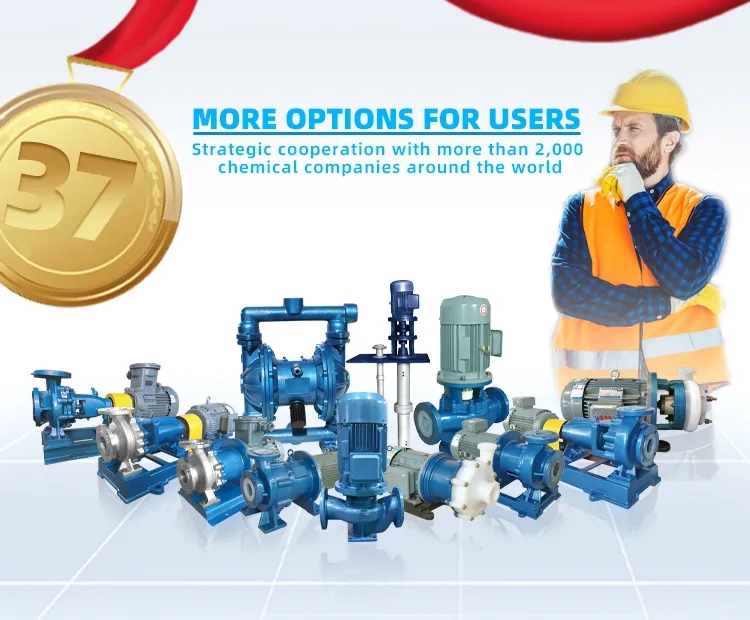TEL: +86 15587495056
Advantages of Steel-Lined PTFE Magnetic Drive Pumps Compared to Cast Iron-Lined PTFE Magnetic Drive Pumps

In industrial fields involving the transportation of highly corrosive media such as petrochemicals, acid and alkali production, and non-ferrous metal smelting, gas lined magnetic pumps have become the core equipment due to their leak free and excellent corrosion resistance. Among them, although the steel lined PTFE magnetic pump and the cast iron lined nitrogen magnetic pump belong to the category of lined gas magnetic pumps, and both flow components use gas plastic lining to resist corrosion, due to the essential differences in the base materials (steel and cast iron), there is a significant gap between the two in terms of performance upper limit, applicable scenarios, and long-term operating value
More outstanding structural strength, highlighting the ability to withstand pressure and impact
The mechanical properties of the matrix material directly determine the structural load-bearing capacity of the pump body, which is also the core advantage of the steel lined four gas magnetic pump. Cast iron material itself has high brittleness The inherent defects of low tensile strength and poor impact resistance are prone to structural failures such as cracks and damage when subjected to high pressure or fluctuating working conditions. Steel has excellent tensile strength, toughness, and fatigue resistance. Steel lined PTFE magnetic pumps based on this material can form a more stable structural support.
In addition, the good toughness of steel makes it perform much better than brittle cast iron in dealing with instantaneous stress caused by medium impact and equipment start stop. In the transportation of corrosive media containing small solid particles (such as acid leaching solutions in the smelting industry), steel lined four gas magnetic pumps can better resist the erosion and impact of particles on the pump body, reducing the risk of lining detachment caused by substrate damage,
Better corrosion resistance and stability, extending the service life of equipment
Although the overcurrent components of both pumps are lined with gas plastic to isolate corrosive media, the difference in corrosion resistance of the base material directly affects the overall service life of the equipment. Cast iron material itself has poor corrosion resistance. Even with gas plastic lining protection, once the lining is slightly damaged due to long-term wear, installation deviation, or medium erosion, corrosive media will quickly penetrate into the cast iron substrate, causing corrosion and ulceration of the substrate. The volume expansion caused by corrosion will further damage the integrity of the lining, forming a vicious cycle of “lining damage substrate corrosion more severe lining damage”, leading to frequent scrapping and replacement of equipment.
The steel substrate (especially carbon steel or stainless steel that has undergone anti-corrosion treatment) itself has a certain degree of corrosion resistance. Even if there is local minor damage to the lining, the steel substrate can resist medium erosion for a certain period of time, which provides a buffer for equipment maintenance. At the same time, the surface flatness of steel is higher, and the bonding strength with the gas plastic lining is much better than that of the cast iron matrix, which can effectively reduce the gap between the lining and the matrix and reduce the risk of medium penetration. Under strong corrosive conditions such as acid and alkali production, the average service life of steel lined PTFE magnetic pumps can reach 3-5 years, while the service life of cast iron lined PTFE magnetic pumps is usually only 1-2 years, and the frequency of maintenance due to corrosion in the later stage is significantly higher.
It is worth noting that the stability of the steel matrix can also enhance the high-temperature resistance of the lining. When transporting corrosive media with high temperatures, the thermal deformation coefficient of the cast iron matrix is relatively large, which makes it easy to separate from the lining due to thermal stress; The thermal stability of the steel substrate is better, which can form a more stable bond with the fluorine lining layer, making the steel lined PTFE magnetic pump adaptable to higher temperature conditions and further expanding the applicability of the equipment.
Widely applicable scenarios, suitable for complex and harsh working conditions
The application scenarios of fluorine lined magnetic pumps are limited by the performance of the substrate. Steel lined four gas magnetic pumps, with their advantages in strength, corrosion resistance, and stability, can adapt to more complex and harsh industrial conditions, while cast iron lined fluorine magnetic pumps are mostly limited to the transportation of simple and low-pressure corrosive media.
In scenarios such as high-pressure reaction system feeding and strong oxidant (such as dihydrogen water) transportation in the petrochemical industry, steel lined four gas magnetic pumps can achieve safe transportation with excellent pressure bearing capacity and corrosion resistance stability; In the transportation of high-temperature acid leaching solution (with a temperature of over 100 ℃) for non-ferrous metal refining, the thermal stability of the steel substrate can effectively prevent lining detachment; In the high-precision transportation of corrosive reagents in the pharmaceutical industry, the low vibration characteristics of its operation can ensure flow stability, avoid reagent waste or reaction runaway.
With the upgrading of industrial production to complex working conditions such as commercial pressure, high temperature, and high corrosion, as well as the increasing requirements for environmental protection and safety, steel lined PTFE magnetic pumps have demonstrated irreplaceable advantages due to their structural strength, corrosion resistance, stability, and operational reliability. When selecting models, enterprises should consider their own working conditions to ensure the safety, stability, and efficiency of production.

